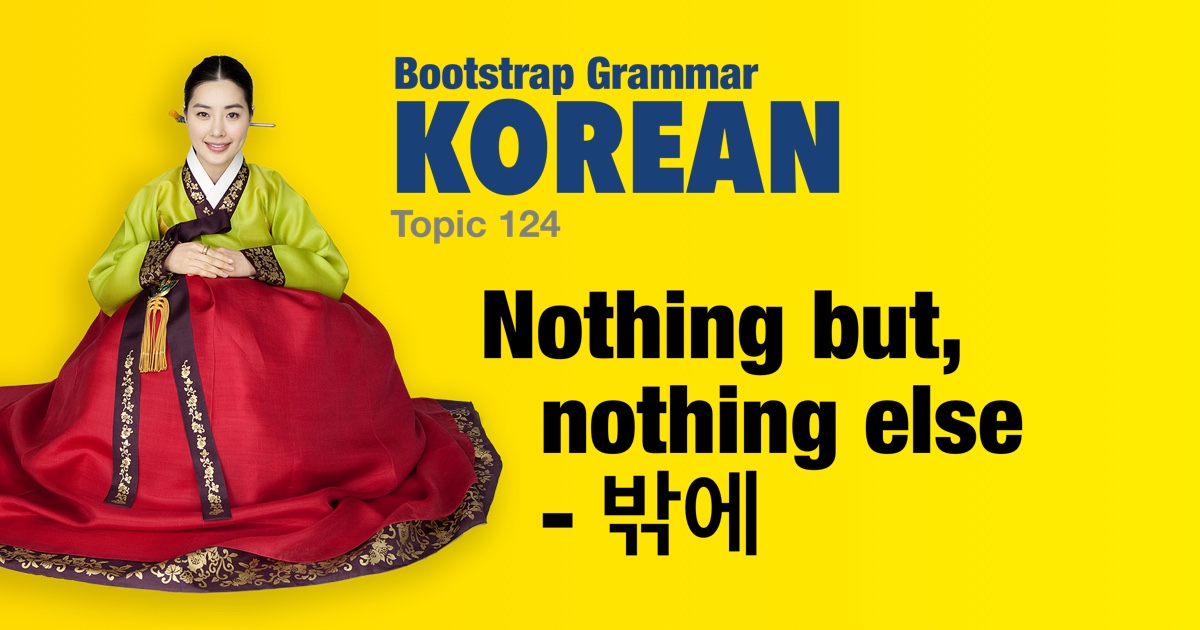Korean grammar - Nothing but, nothing else - 밖에 |
|||
|
|||
Pattern: Noun + 밖에 The particle 밖에 is attached to a noun and means 'nothing but' or 'nothing else' or 'except'. It expresses that no more than one thing or option is available or remains. -- Literally it means 'outside of' It must to be used in a negative statement (including 없다 and 아니다 etc.) |
| Examples: | |
|
집에 음식이 조금밖에 없어요.
In the house there is only a little food left.
|
|
|
저는 한국어밖에 할 줄 몰라요.
I can only speak Korean.
|
|
|
한국어 조금밖에 못해요.
(I) can only speak a little bit of Korean.
|
|
|
제 주머니에는 천원밖에 없어요.
In my pocket there is only a thousand won.
|
|
|
사과가 하나밖에 남지 않았어요.
There is only one apple left.
|
|
|
이제 냉장고에 계란이 한두 개밖에 없어요.
Now (I) only have one or two eggs in the refrigerator.
|
|
|
책꽂이에 책이 예닐곱 권밖에 없네요.
(I see that) there are only six or seven books on the bookshelf.
|
|
|
운동장에는 아이들이 서너 명밖에 없었어요.
There were only three or four children on the playground.
|
|
|
왜 복숭아가 세 개밖에 남지 않았어요.
Why are there only three peaches left?
|
|
|
너밖에 없어.
(I) have only you.
|
|
|
맛있는 케이크를 사려면 미리 주문하는 수밖에 없어요.
If (you) want to buy a delicious cake, (you) have no way (choice) but to order in advance.
|
|
|
세영이는 그를 만나지 못하고 돌아올 수밖에 없었어요.
Se-young was unable to meet him and had no choice but to return. |
|
|
그녀는 처음부터 작업을 다시 할 수밖에 없었죠.
She had no choice but to start over from scratch, didn’t (she). |
|
|
우리는 희망을 가지는 수밖에 없어요.
We can only have hope. |
|
|
절망밖에 남지 않았다는 생각은 버리세요.
Stop thinking that (you) have nothing but despair. |
|
|
한국어는 '안녕하세요'랑 '감사합니다'밖에 몰라요.
(I) can't say anything more than '안녕하세요' and '감사합니다' in Korean. |
|
|
경찰관 한명밖에 안 왔네요!
Only one policeman came! |
|
|
한국인 친구는 한 명밖에 없어요.
I have only one Korean friend. |
|
|
우리 고양이는 참치밖에 안 먹어요.
Our (my) cat only eats tuna. |
|
 |
|


 or 'There is not more than a little food left in the house.'
or 'There is not more than a little food left in the house.'
